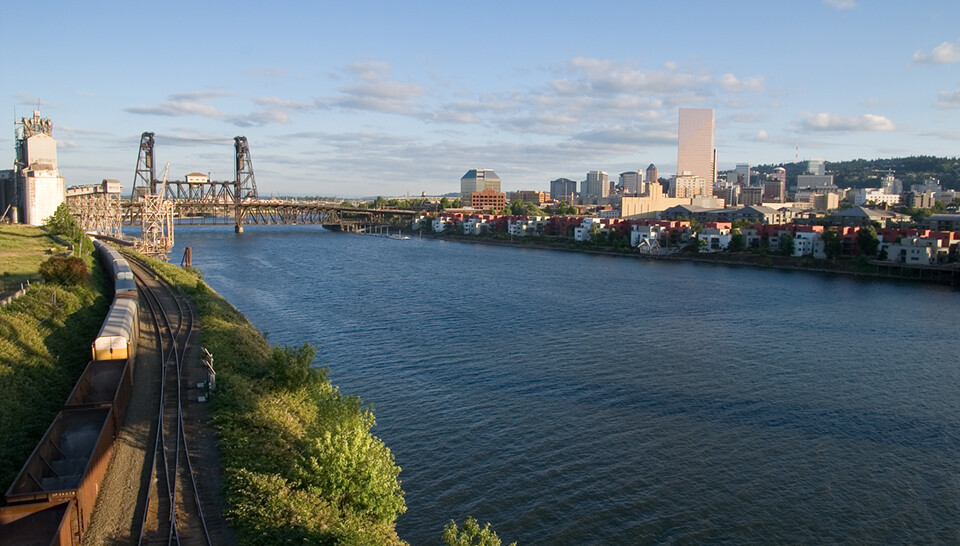Portland Residents Demand Action to Avoid Toxic Catastrophe Along the Willamette River

PORTLAND, Ore. — More than 90% of all liquid fuel in Oregon is contained in aging tanks at the six-mile long Critical Energy Infrastructure (CEI) Hub on the west shore of the Willamette River, and residents of Portland are demanding action to avoid a potential toxic catastrophe.
The CEI Hub storage tanks hold all jet fuel for Portland International Airport, and diesel and gas supplies for the Portland metro area.
The Region Has a Well-Documented Earthquake Risk
The risk of major infrastructure failure, spillage, or accident is causing anxiety among residents because of the region’s well-documented earthquake risks. The CEI Hub is built on unstable soil that will liquify and spread laterally in the event of an earthquake which has a 26% chance of happening within the next 50 years.
The hub was established close to the Portland urban core and the Willamette River years before understanding the impact of earthquake risks to the region. Geologists say the ground on which the hub is established could liquify when the water table rises during an earthquake and loosens the soil. This will result in lateral spreading towards the Willamette River.
Seismic Risk Analysis on the CEI Hub
In 2020, the City of Portland Bureau of Emergency Management and the Multnomah County Office commissioned a seismic risk analysis of the area to quantify damages in the event of an earthquake in the Cascadia Subduction Zone (CSZ.) Those findings reinforce public concerns.
The study found that a CSZ earthquake could potentially release between 94.6 and 193.7 million gallons of liquid fuel in the storage tanks.
The study revealed that the tanks were built in 1954, long before the establishment of modern seismic standards.
The cost of such a disaster is estimated at upwards of $2.6 billion.
The oil spills will flow into the Willamette River and wash downstream to the Columbia River Mouth.
Read: Multnomah County Presses For Action On Deadly Gas Release During Potential Cascadia Earthquake
Residents Call for Action
This week, representatives from more than 80 neighborhoods met at the Northeast Portland Augustana Lutheran Church to air their concerns and have appealed to the government to formulate a plan of action for the CEI Hub.
“A ticking timebomb” is how Linnton Neighborhood Association’s Nancy Hiser described the situation. She said that floods were occurring more frequently, and pointed out that the CEI Hub is built on liquifiable soil. Hiser said “accidents happen” and human error posed another threat to the safety of the area. Residents are demanding that the government investigate a risk management plan or remove the tanks from the CEI Hub.
Overview
More than 600 jet fuel and gasoline tanks could rupture during a natural disaster, such as an earthquake.
Each tank holds about 350 gallons of fuel that could rupture and stand on soil that will liquify, spilling the contents into the Willamette River.
The Oregon Department of Environmental Quality has called on tank owners to provide plans on how they will protect residents should a disaster occur. The call has been made in terms of a state law requiring earthquake assessments.
References
CEI Hub Seismic Risk Analysis | Multnomah County (multco.us)
